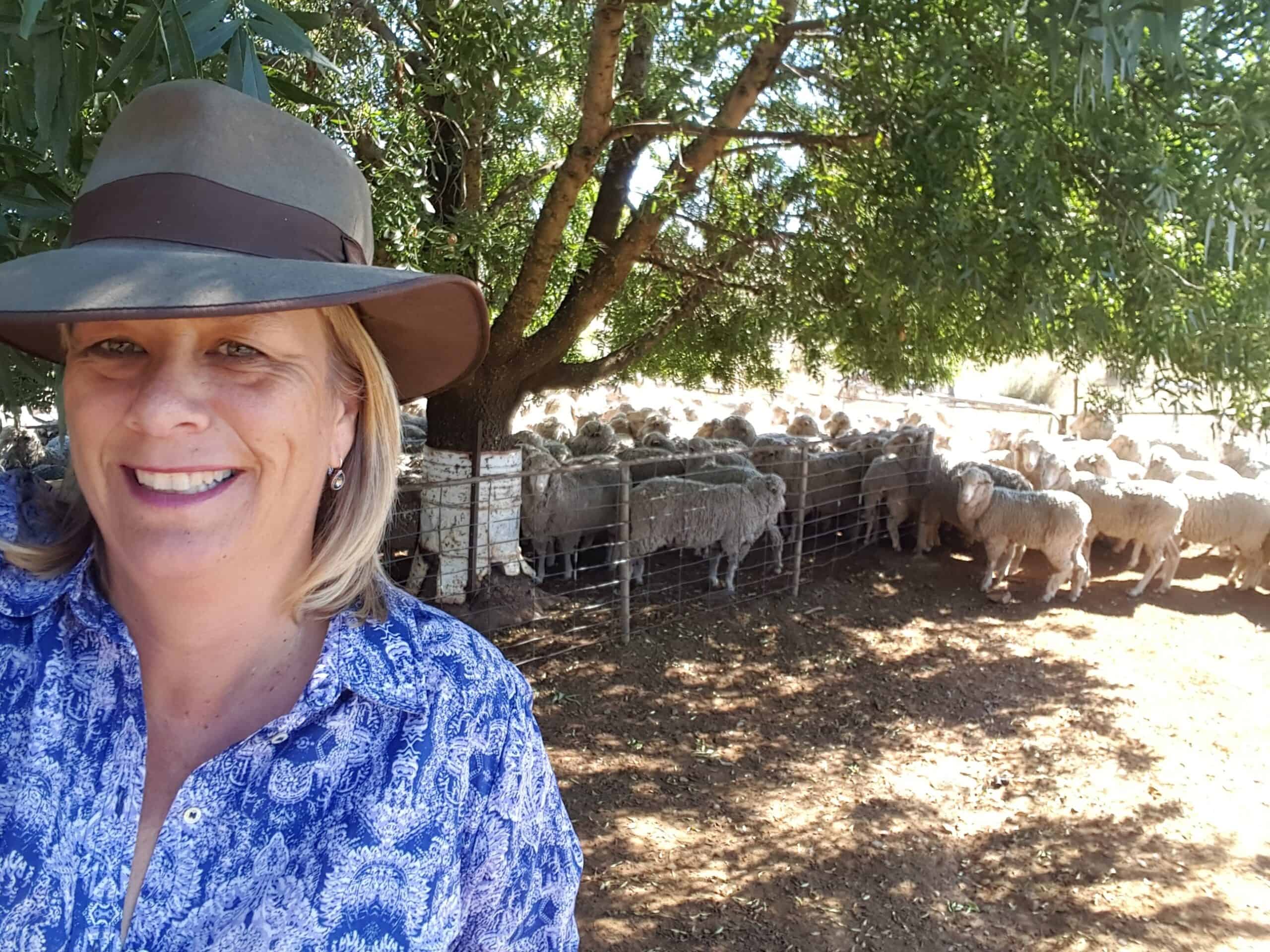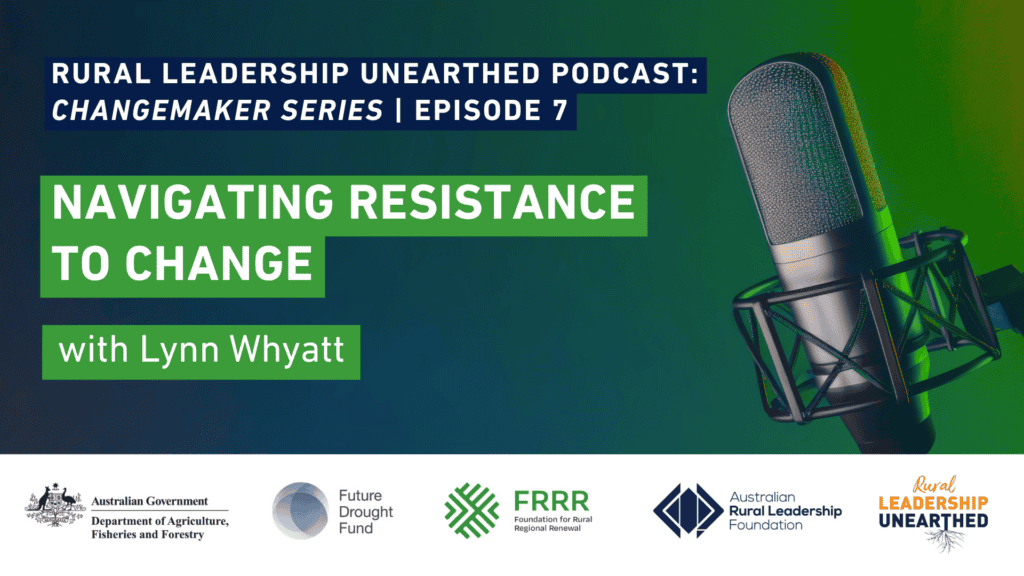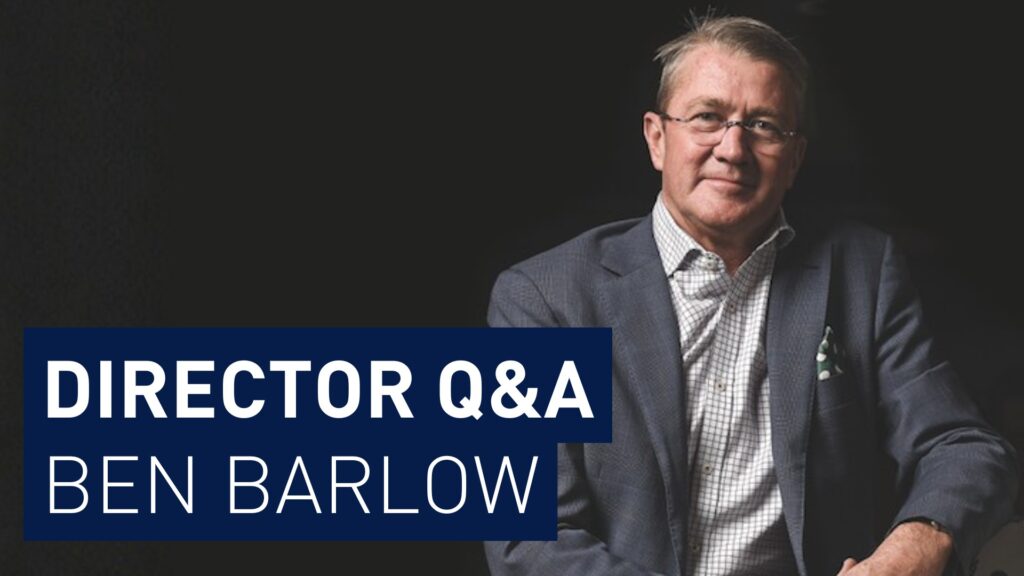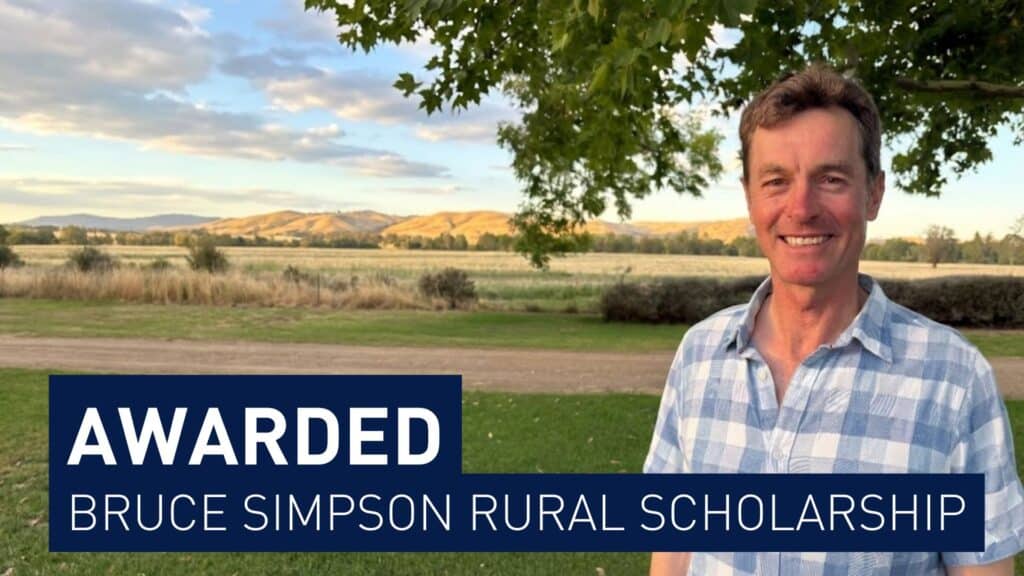There was no formal firefighter training when Vivien Thomson started as a young park ranger in the ACT in 1987. She learned by watching and then doing.
For the past 35 years, she has continued watching fire. Its behaviour, its impact on the communities, and the people who confront it face-to-face.
A seminal moment for the Australian Rural Leadership Program graduate came in 2003. A catastrophic blaze burned through the ACT. Reaching suburban Canberra, the blaze killed four people and destroyed hundreds of homes. In the fire’s wake, Vivien was reeling emotionally. Trying to support those she had commanded or worked alongside on the fire ground.
“I wasn’t coping. All these people came to me as a Captain in the Rural Fire Service and President of the ACT Fire Controllers Group. I’m standing there going – I’ve never been in this space. What do I do? I rang my executive director and said I needed help. The day-to-day counsellors in the workspace didn’t know how to deal with what we’d experienced. People were telling me I was a superhero. I said I’m not coping – I’m not broken, I just don’t know how to deal with this situation.”
In the time that followed, Vivien left the ACT and moved to Muttama in rural New South Wales. With her partner, Robert, she runs a 1200-hectare sheep and cattle property.
“I was teetering on a see-saw, and I could have gone either way. I wanted to grab my experience and use it for good. That’s why I applied for the ARLP. I knew some of its alumni like Cathy McGowan and Claire O’Brien. I was mixing with people from the leadership program who seemed to stand above the crowd. The sort of leadership they were displaying was what I wanted to achieve.”
Leadership program defines Vivien Thomson’s path
Vivien Thomson embarked on the Australian Rural Leadership Program 18 in 2011. She had a clear picture of how she wanted to evolve as a leader.
“On the fire ground, there’s no room for questions. The people you work with have to have faith that you know what you’re doing and are making the right decisions. My leadership style was very fast, and I wanted to really slow it down.”
As well as helping her surmount massive impostor syndrome, the ARLP left Vivien Thomson with an overarching purpose that solidified in the following years.
“My biggest learning has been that it’s not about me. I can use the skills and knowledge I have for the benefit of other people. I’ve carried that clarity into everything I do.”
Today, Vivien describes herself as an outspoken leader, addressing global audiences about fire management and climate change. She is Director of the Australian Firefighters Climate Alliance and recently joined the Board of the International Association of Wildland Fire.
Fighting fires beyond the blaze
Working to help people beyond the fire ground is what Vivien has become best known for. She tirelessly raises awareness of the mental health toll on firefighters and those responding to natural disasters.
She understands better than anyone that fire doesn’t consume only land and lives, but it continues to burn through relationships, families and communities.
“I wrote a book about it ten years ago (Ashes of the Firefighters), and my reasons were really twofold. When you’re going through it, you think you’re alone, and the only one experiencing it. Particularly for rural firefighters, you experience a big fire campaign then go back to your farm or community. It’s vital that people know they’re not alone… another offshoot is the impact on family members – parents, siblings, partners, who may not understand the changes they’re seeing in someone they love. After going through it, it’s that knowledge that we can do better to help each other over the long-term. A lot of the people I went through 2003 with have passed away … Twenty years out, we know the high stress we went through took a physical and mental toll.”
On a recent trip to a fire management conference in Portugal, Vivien joined environmental scientists and researchers; doing her best to balance the flurry of figures and data with her insights into human beings and their mental health.
“One person came up to me afterwards and said he’s lost 17 men. I was absolutely shocked. They’re still committed to protecting their communities. The way we talk about disasters is crucial. Now we openly talk about recovery. We talk about vicarious trauma. The terminology is changing and it needs to – this challenge is not going to go away.”
Moving from the frontline to recovery
Into the future, Vivien wants to work to improve the structures that serve people and regions impacted by fires.
“I don’t operationally fire fight now, but the area I want to pursue is working in rural liaison between communities, farmers and the recovery response. A lot of people really just don’t know how to go into a rural community and talk to farmers.”
In the communities she works with, Vivien is always careful to acknowledge that individuals have different needs.
“People know you do this job not for yourself but for others, but everyone has their own way of coping. Over the years I’ve learned that communities need care and someone who understands where they’re coming from.”
How Vivien Thomson found life and leadership balance
Vivien is currently balancing her energy and drive as she embraces a drastic change of pace to spend more time with her aging mum.
“I have no idea where I’m going to end up from here, but I’m also used to going in to the unknown.”
While she recently stepped down from a role as Team Leader with NSW Community Corrections, Vivien is a committed fire and climate leader. She is giving back as a mentor through the Australian Rural Leadership Foundation’s drought resilience leaders mentoring program. She helps the New South Wales Rural Fire Service develop a mentorship program because passing knowledge on is key.
She is also working on a new book drawing on the experiences of other climate leaders, including a range of ARLP alumni.
“I have kept my Course 18 cohort and other ARLP graduates as a sounding board in my leadership. I’m very grateful for the friendships, but more importantly the knowledge they bring.”
With one of her sons now serving with ACT Fire and Rescue, Vivien will continue to push for adequate resources and strategic support for those dealing with trauma and the impact of fire.
After running for the Senate in 2016, Vivien is philosophical about not having a political career, however she will continue fighting to see more common sense within the system.
“There are very few firefighters in politics. Having been involved in farming and firefighting; small communities; big ones, cities; the whole lot, what I want to see is a seamless model for disaster prevention and response. The climate will impact us severely for another 20-30 years no matter what we change right now. I’d love to see farming-to firefighting-to recovery done better. If we understand the impacts across each part of the spectrum, rather than arguing about science or who is in control, we’ll have better outcomes in every way.”






